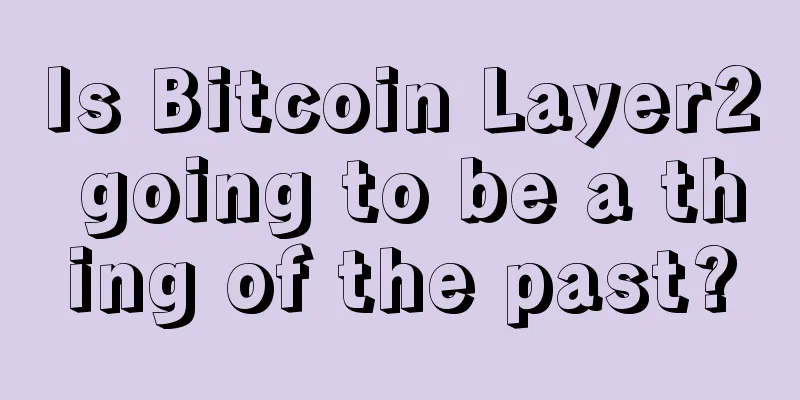The "Mentougou" Bitcoin Exchange, which filed for bankruptcy eight years ago, is now worth trillions?

|
In early 2013, Peter Vesenes was working on a deal in his Seattle office to acquire the North American client business of Mt. Gox, then the world’s largest bitcoin exchange, when his phone rang. The team working on the trades had already had trouble viewing its books, and now U.S. securities regulators wanted to ask him if he had heard of the Tokyo-based exchange. The Securities and Exchange Commission was conducting an enforcement action and wanted him to testify in the case. “As soon as I heard that Gox was being targeted by the SEC’s enforcement arm, I was pretty sure the trade was dead,” Visonnes said. Photo by André François McKenzie on Unsplash He was right. The deal fell through, and Mt. Gox collapsed in scandal. It soon went bankrupt, leaving behind a horde of creditors around the world. Eight years later, earlier this month, the bankruptcy proceedings for Mt. Gox, which put the exchange and its users in bankruptcy after the 2014 market crash, took a major step forward. An agreement brokered in part by Visonnes was announced that allows creditors to recover some of their funds before the case is decided. Many of the bitcoins lost or stolen from Mt. Gox have been found, and Japanese bankruptcy trustee Nobuaki Kobayashi is working to repay creditors. CoinLab, co-founded by Visones, is working with MGIFLP, a subsidiary of Fortress Investments, to allow creditors to consider up to 90% of the remaining bitcoins for bankruptcy transactions. Not all of the bitcoins held by Mt. Gox when it went bankrupt are recoverable. A CoinLab spokesperson said that for every digital token locked up in the bankruptcy, only 0.23 coins were available for distribution. Claims against Mt. Gox’s bitcoins are far greater than the amount of cryptocurrency held by the trust. CoinLab files $16 billion bankruptcy claim against Mt. Gox. However, as Bitcoin hit an all-time high of $41,981 on January 8, Mt. Gox’s history seems even more important, as the loss of more than 850,000 Bitcoins in 2014 was perhaps the closest Bitcoin came to death. It all started with Magic: The Gathering, a card game that had gone online and provided a way for users to exchange cards over the internet. In 2007, Jed McCaleb, the developer of the file-sharing network eDonkey, bought the domain name of Magic the Gathering Online Exchange (Mt. Gox for short). McCaleb’s attention turned to Bitcoin a few years later, after its creation in 2009. He realized that the method of buying and selling wasn’t very good, and decided to convert Mt. Gox into one of the first digital asset exchanges. In 2010, Visonnes approached McCaleb about joining the effort to make Mt. Gox the world’s largest bitcoin marketplace. After closing eDonkey, McCaleb moved to Costa Rica to surf and raise a family. Although Visonni wanted to do business with McCaleb, he also wanted to meet him in person first. "I took probably the most expensive flight of my life" to Costa Rica, Visones said, a flight that cost him 1,500 bitcoins, which at current bitcoin prices would be worth about $47.8 million. After sleeping on a mattress at McCaleb’s house, the two men ultimately couldn’t come to a consensus on Mt. Gox, so Visones hitchhiked 200 miles back to the airport. In 2011, McCaleb sold Mt. Gox to a Frenchman named Mark Karpeles. “He was going to give me half of the first six months’ revenue, and I was going to keep 12 percent,” McCaleb said in an interview. McCaleb no longer owns any shares in Mt. Gox. In the U.S., Visones still believed Mt. Gox was a once-in-a-lifetime investment. He co-founded CoinLab in 2012 and counted early Bitcoin pioneers Roger Ver and Barry Silbert as investors. Ver actually lived down the street from Mt. Gox in Tokyo, Visones said, and in the summer of 2012, CoinLab struck a deal to buy Mt. Gox outright from Karpeles for about $10 million. “We were ready,” he said. Then, “I was left out.” The deal evolved into CoinLab taking over operations for Mt. Gox clients in the United States, Canada and Mexico, but Visones said his team didn’t have the proper access to the ledgers to make sure everything was going as planned at the exchange. At the time, he said, Mt. Gox handled 80% of the world’s bitcoin transactions. CoinLab sued Mt. Gox for violating its terms soon after the deal was announced in 2013. About a year later, the loss or theft of 850,000 bitcoins held on Mt. Gox was disclosed. In 2019, the Tokyo District Court found Karpeles guilty of tampering with financial records and sentenced him to two and a half years of probation, which he will not serve unless he violates the law again within four years. “It could have been a trillion-dollar company,” Visones said. “It’s very sad.” Visones said CoinLab's current $16 billion claim against Mt. Gox is based on how much the company believes their share would be worth if Mt. Gox was managed properly. The CoinLab lawsuit, filed in 2013, continues to this day. Part of the reason the case lasted years is that it involves international jurisdiction. It took Visones six months to prosecute Karpeles, having to use the judicial and extrajudicial documents provided by the Hague Convention on International Law Enforcement. It then took another year to arrange for the deposition, he said. Visonnes, who first bought bitcoin on Mt. Gox for about 5 cents, has not been disappointed with the digital currency. He said: "The impact of cryptocurrency is still underestimated. It is still not fairly appreciated for how revolutionary it is." He said there is room for many blockchain applications and that he still values Bitcoin because it has better privacy protection than other blockchains such as Ethereum, XRP or Polkadot. He is currently working on a project to embed Bitcoin into bank notes and other blockchain-based ideas. (The Paper) |
<<: Counting Dogecoin's five epic surges
Recommend
What does the Venus line represent and what impact does it have on us?
We use our hands all the time, and palmistry is a...
Three facial features of a person who is cunning and inhumane
1. Pointed head Head shape is also very important...
How to tell a person's fortune from his philtrum
The philtrum is the groove between the upper lip ...
How to tell by palm lines: People with rough palm lines will have a hard life
For a person, there is actually an opportunity to...
Japanese banking giant Mitsubishi UFJ plans to issue its own blockchain-based cryptocurrency in 2017
Asahi Shimbun reported that Bank of Tokyo-Mitsubi...
Wang Yongli: The deep meaning behind the central bank's push for digital currency
The central bank's direct issuance of online ...
What are the facial features of a man with a sad mole?
Mole of Misery: A mole located within 1 inch (one...
The most cranky man's face
In fact, most of the time, we should put an end t...
A man with a bad heart and a vicious face is like this
By looking at a person's face you can know hi...
Where is the mole? It is auspicious.
Where is the mole? It is auspicious. 1. Mole at t...
Monetary Authority of Singapore: More than 300 companies have applied for payment or crypto exchange licenses, including Alibaba, Google and other companies
In an interview, Sopnendu Mohanty, Chief Fintech ...
t01475: A brief review of the second phase of Filecoin testing
Let’s review the results of the 1475 test period:...
Xie Dan: How to achieve Pareto optimality through mathematical game theory of mining machines (deep brain-burning)
Author: Xie Dan, CEO of Xinmai Microelectronics C...
How to read the fortune of hair
Hair is on the head and, from the perspective of ...
What do the two wisdom lines represent?
Everyone has a wisdom line, but some people have ...









